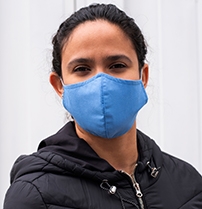Abstract
Using the April 2020 Current Population Survey (CPS) micro dataset, we explore the racialized and gendered effects of the COVID-19 pandemic on the probability of being unemployed. The distribution of job losses from COVID-19 for women and men or for different racial/ethnic categories has been studied in the recent literature. We contribute to this literature by providing the first intersectional analysis of unemployment under COVID-19, where we examine the differences in the likelihood of unemployment across groups of White men, White women, Black men, Black women, Hispanic men and Hispanic women. Controlling for individual characteristics such as education and age, as well as industry and occupation effects, we show that women of all three racial/ethnic categories are more likely to be unemployed compared to men, yet there are substantial differences across these groups based on different unemployment measures. Hispanic women have the highest likelihood of being unemployed, followed by Black women, who are still more likely to be unemployed than White women. We also examine if ability to work from home has benefited any particular group in terms of lowering their likelihood of unemployment during the pandemic. We find that in industries with a high degree of teleworkable jobs, White women, Black men and Hispanic men are no longer more likely to be unemployed relative to White men. However, Black women and Hispanic Women still experience a significantly higher probability of losing their jobs compared to White men even if they are employed in industries with highly teleworkable jobs. As we control for both individual and aggregate factors, our results suggest that these differences are not simply the result of overrepresentation of women of color in certain industries and occupations; rather, unobservable factors such as discrimination could be at work.



